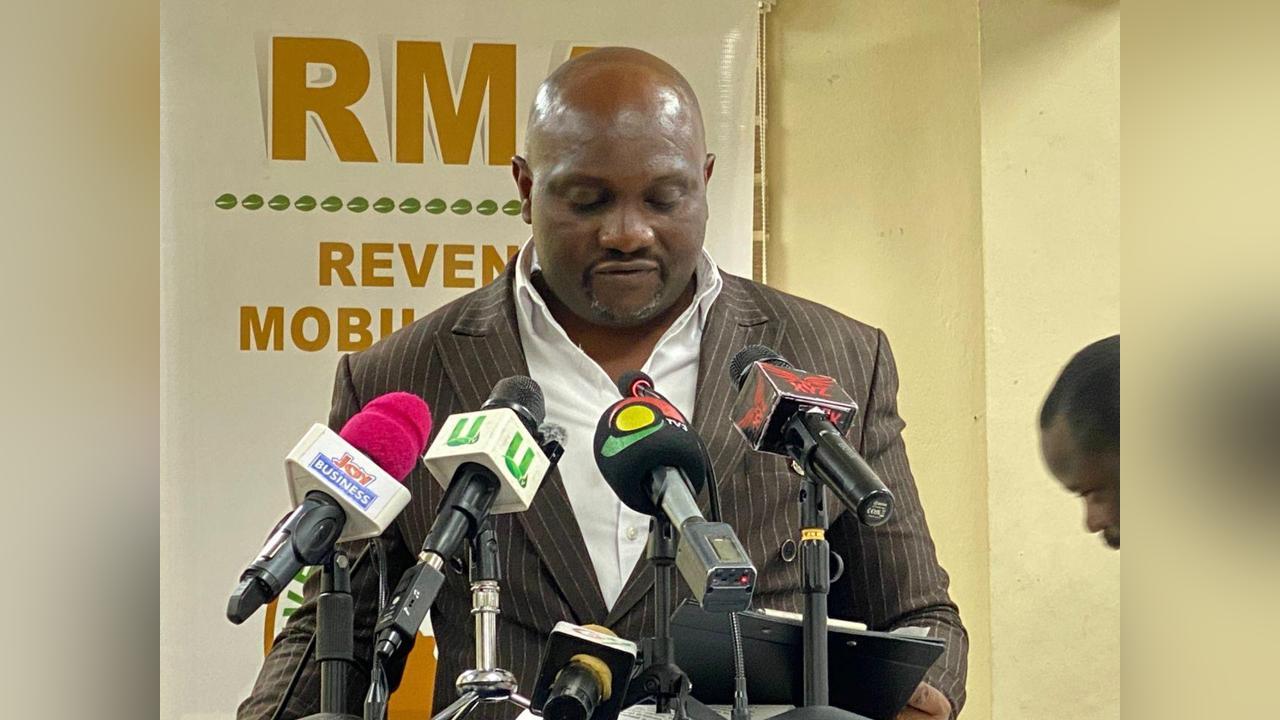Africa-Press – Ghana. The Revenue Mobilisation Africa (RMA), a civil society organisation and partners has called on the government to constitute an independent commission of enquiry to investigate the banking sector clean-up exercise.
It said, “The clean-up exercise, while was argued necessary to stabilise the financial sector, cost the State over GHS 25 billion. These funds were largely mobilised through domestic borrowing and have significantly increased the national debt burden.”
The call was made in a statement read by Mr Geoffrey Kabutey Ocansey, the Executive Director of RMA, and supported by Mr Leonard Shang Quartey, Board Chair of RMA, at a press conference held in Accra to raise concerns over how the previous government handled the banking sector clean-up exercise.
It was on the theme, “Delving into the ’60-40’ State Resources Recovery Formula: A CSOs Perspective.”
It said to date, there has been limited transparency and inadequate recovery of the funds injected into collapsed financial institutions.
“Beyond UniBank, there is no clear national accounting of what has been recovered, how assets have been managed or disposed of, and what remains outstanding. This raises a real risk of financial loss to the State and the Ghanaian taxpayer,” it stated.
The statement said although the Attorney-General has outlined broad settlement with UniBank’s former debtors, the public remained largely uninformed about the specific terms and timelines.
“We call on the Minister of Finance and the Bank of Ghana to publish the full details of all agreements and status of recovery so far.”
It stated that before the revocation of UniBank’s license, the Government of Ghana owed the bank approximately GHS 2.9 billion, held bonds, treasury bills, and other instruments.
The statement said, “The bank was placed under administration for six months under Act 930 (Bank and Specialised Deposit-Taking Institutions Act), a provision specifically designed to rehabilitate banks and prevent collapse, not to dissolve them.”
It noted that the indebtedness of UniBank as at the beginning of 2025 per court records was GHS 2.8 billion, adding that in 2024, the former Attorney General, Godfred Dame
through the receiver of UniBank amended the total validated indebtedness of UniBank from GHS 5.7 billion to GHS 2.8 billion.
“The GHS 5.7 billion circulating in the news in recent times is therefore not justified by existing records,” the statement said, adding that, “A further validation by the current Government of the GHS 2.8 billion figure brought the amount to GHS 2 billion in the year 2025.”
The CSOs said the processes for the liquidation of the UniBank begged for many outstanding questions hence their demand for the constitution of an independent commission of enquiry to investigate the role of the Bank of Ghana, the Attorney General and the Receiver in the revocation of UniBank’s licence.
Others are the shifting of figures of validated liabilities (from GHS 5.7 billion to GHS 2.8 billion and now GHS 2 billion); and investigate the State’s failure to acknowledge GHS 2.9 billion owed to the bank by the government during the cleanup.
They urged the current administration to initiate legal proceedings against any public official, including the Attorney General and the Receiver, who knowingly misrepresented financial facts, and causing financial loss to the State.
The statement said the RMA and partners acknowledged the recent decision by the Attorney-General to enter a nolle prosequi in the criminal prosecution of former officials of UniBank, and the State’s attention also towards a structured recovery of public funds lost through banking sector failures.
“As civil society organisations committed to promoting transparent and effective mobilisation of public resources, we welcome all efforts that lead to the recovery of lost public funds.
“The ongoing restitution arrangement – through which over GHS 824 million in property has already been transferred by UniBank, with a further GHS 1.2 billion expected, marks a positive step towards accountability and restoration of public resources.
For More News And Analysis About Ghana Follow Africa-Press







